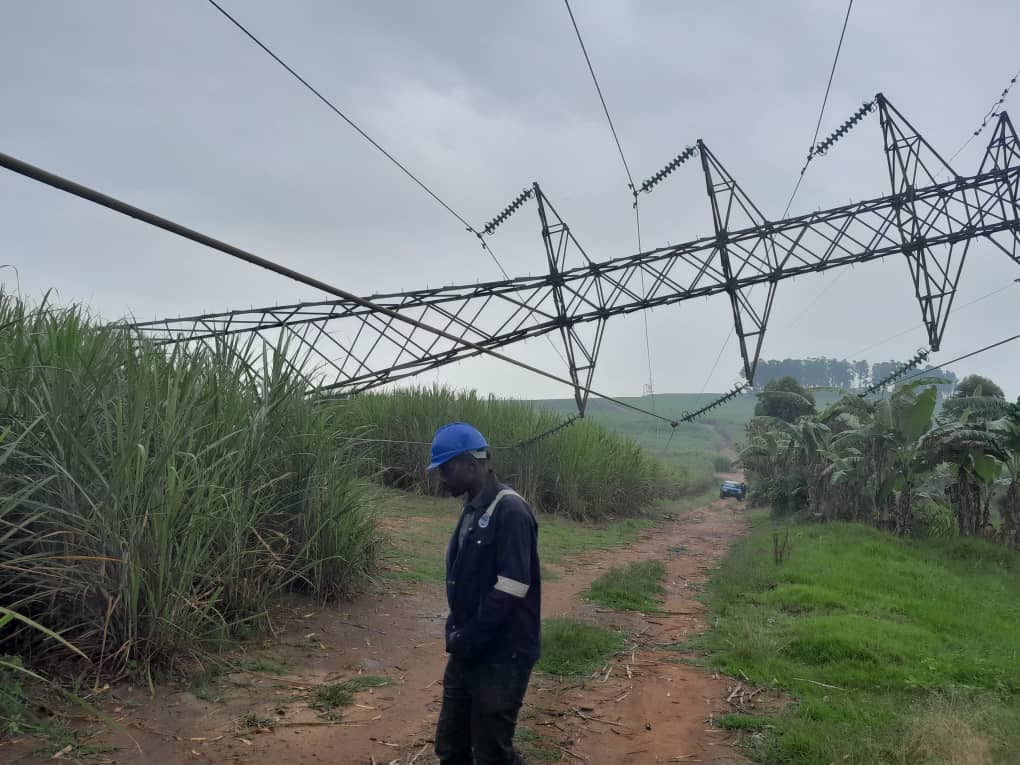The Transmission Company of Nigeria (TCN) on October 18 announced that two transmission towers had been vandalised, throwing 17 northern states in total darkness, which crippled essential services, including healthcare and technology, across affected areas.
States like Kano, Kaduna, Gombe, Plateau, Katsina and so on were among those impacted, marking the first time an entire region experienced total power cuts due to the unchecked criminal activities of vandals who destroyed the 330kV Shiroro–Kaduna transmission lines.
“Investigations reveal that this is not a case of routine damage but a deliberate act of vandalism,” TCN spokesperson Ndidi Mbah said in October. “We are working closely with security operatives to secure the area, which has been identified as vulnerable to banditry, posing risks to our infrastructure and personnel.”
It took the intervention of Presidential Bola Tinubu, deploying troops to safeguard engineers and technicians while conducting repairs on the towers before a partial restoration was possible.
Despite government assurances that the outage will be fixed by November 12, the damage to Nigeria’s telecoms infrastructure and power sector has been severe. Dr Aminu Maida, Executive Vice Chairman of the Nigerian Communications Commission (NCC), revealed that telecom companies were losing billions of naira due to increasing cases of vandalism, fibre cuts, and equipment theft.
MTN Nigeria recorded over 6,000 cuts on its fibre cable and was forced to relocate 500 kilometres of vulnerable fibre cables between 2022 and 2023.
Similarly, Airtel Nigeria CEO Carl Cruz noted that the company experiences an average of 1000 cases of fibre cut every month, culminating in significant internet outages, including a nationwide disruption recorded in March, which left customers unable to make calls, let alone access the internet.
Read also: Kano Digital Innovation Park burned and looted by protesters
South Africa faces similar crisis as telecoms lose billions
The challenge of power vandalism is not unique to Nigeria, as South Africa is also grappling with a rise in infrastructure theft and vandalism.
The Economic Sabotage of Critical Infrastructure Forum, comprising Telkom, Eskom, Prasa, and Transnet, estimates that copper theft alone costs the country R7 billion ($373 million) every year, with a total economic impact of these crimes nearing R187 billion ($9.9 billion).
Between July 2017 and December 2023, Telkom facilitated the arrest of 3,003 individuals in connection with cable theft. Vodacom, another major telecom provider, disclosed that it incurs yearly losses of around R100 million due to battery theft and infrastructure damage at its cell towers.
Industry stakeholders blamed the crimes on several factors which include organised crime and syndicates, opportunistic local criminals and youth-driven theft. They also identified the role of scrap metal dealers in stealing copper wires and batteries to resell.
It is believed that organised crime networks deliberately target telecom infrastructure, concentrating on copper wires, backup generators and backup batteries located at cellular tower sites or base stations.
Amid incessant power outages and “load shedding”, the demand for backup or alternative sources of power has risen sharply, making the stolen batteries and copper wires extremely valuable and sought after.
Impact of vandalism on Africa’s leading tech nations
Nigeria and South Africa, two countries that are at the forefront of African telecommunications and technological development, continue to struggle with infrastructure vandalism without a clear solution in view. This begs the question: For how long will these companies bear huge financial losses before reassessing their investments and service strategies?
